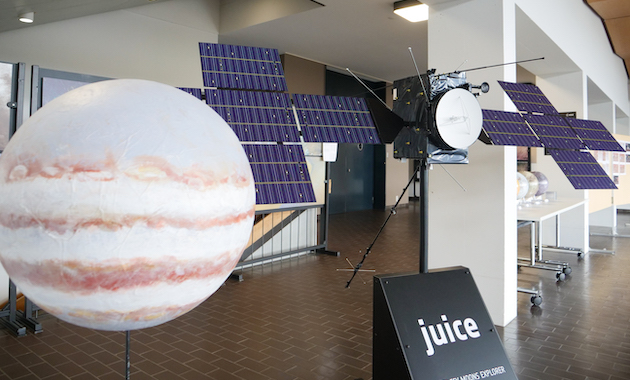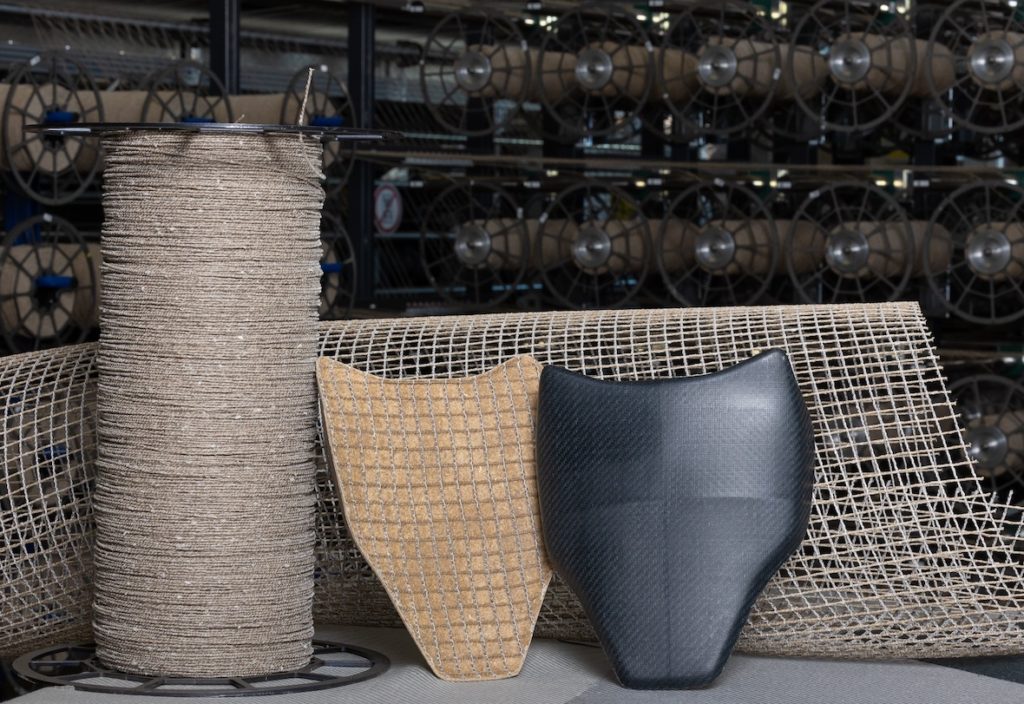
The University of Bern flies to Jupiter to uncover signs of life
19 April 2023

The University of Bern plays a significant role in the ESA’s JUICE mission, which started its journey to Jupiter on 14 April 2023, and will search for signs of life on three icy moons.
On Friday, April 14, 2023, at 2:14 PM, the Ariane 5 rocket carrying the JUICE (Jupiter Icy Moons Explorer) spacecraft successfully launched from the spaceport in Kourou, French Guiana. With this launch, the University of Bern embarks on an eight-year journey to the Jupiter system, where the mission will explore three icy moons using technology developed by the University in search of signs of life.
The European Space Agency (ESA) confirmed the successful separation of the spacecraft from the rocket and the deployment of the solar panels that will power the probe. The spacecraft now begins its journey to explore the largest planet in our solar system, Jupiter, and three of its more than 80 moons: Ganymede, Callisto, and Europa.
The JUICE mission carries ten scientific instruments, with the University of Bern contributing the Neutral and Ion Mass Spectrometer (NIM), part of the Particle Environment Package (PEP), and participating in two other instruments: the Submillimeter Wave Instrument (SWI) and the Laser Altimeter GALA.
Under the leadership of Peter Wurz, the NIM was developed and built at the Institute of Physics at the University of Bern. The mass spectrometer will investigate the chemical and isotopic composition and distribution of particles in the atmospheres of Jupiter’s icy moons, as well as the physical parameters of these atmospheres.
Led by Axel Murk, the Institute for Applied Physics developed the optics and calibration unit for the SWI. The SWI will measure the stratosphere of Jupiter and the atmospheres and surfaces of Jupiter’s icy moons. Instead of visible light, the instrument will measure the thermal radiation from Jupiter’s stratosphere in submillimeter wavelengths, determining temperature distribution, composition, and winds in the atmosphere, as well as investigating the atmospheres and surface properties of the moons.
The Laser Altimeter GALA, which includes a Range Finder Module developed under the direction of Nicolas Thomas, will examine the topography of Ganymede.
The Swiss Federal Government supports the JUICE mission through the PRODEX (PROgramme de Développement d’EXpériences scientifiques – Space Instrumentation Development) program of the European Space Agency. This program enables project teams from research and industry to develop and build contributions for scientific missions, fostering knowledge and technology transfer between science and industry. Ultimately, this collaboration offers a competitive advantage for Switzerland and allows technologies, processes, and products to flow into other markets, providing added value for the economy.

